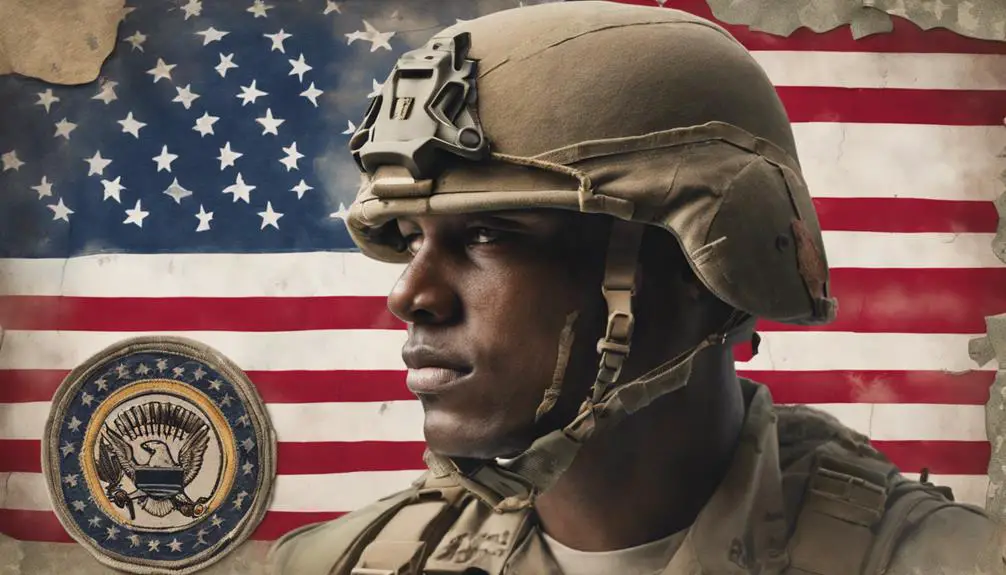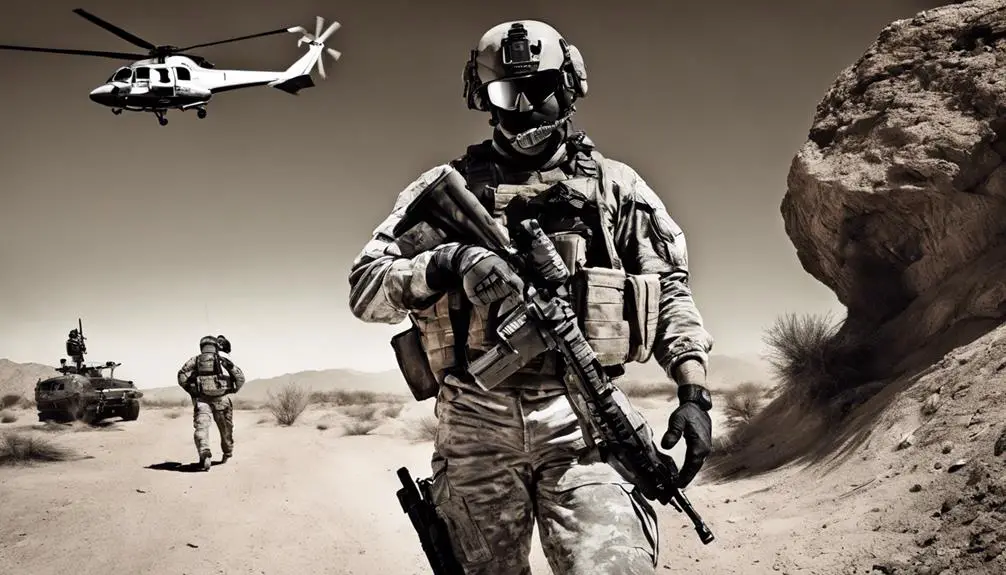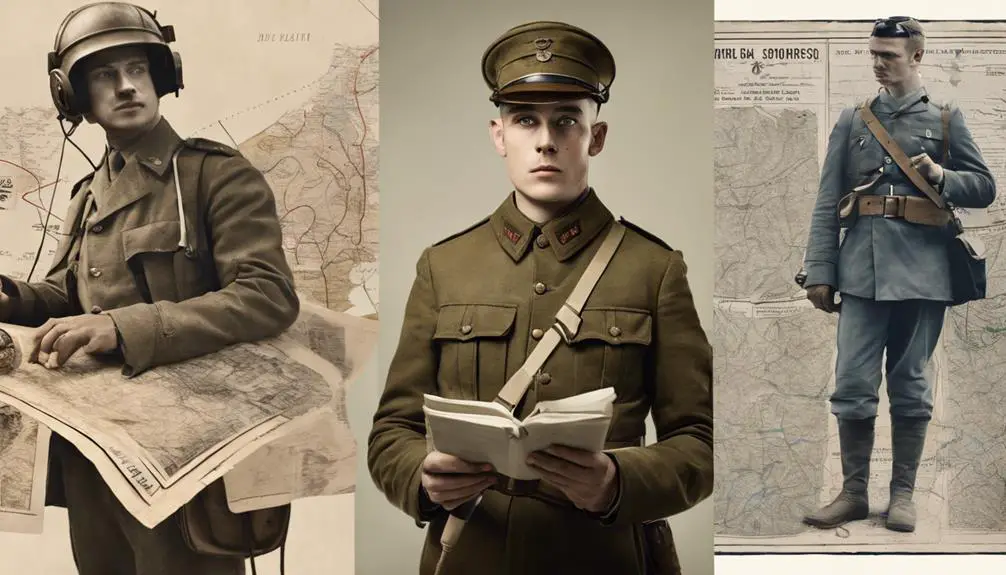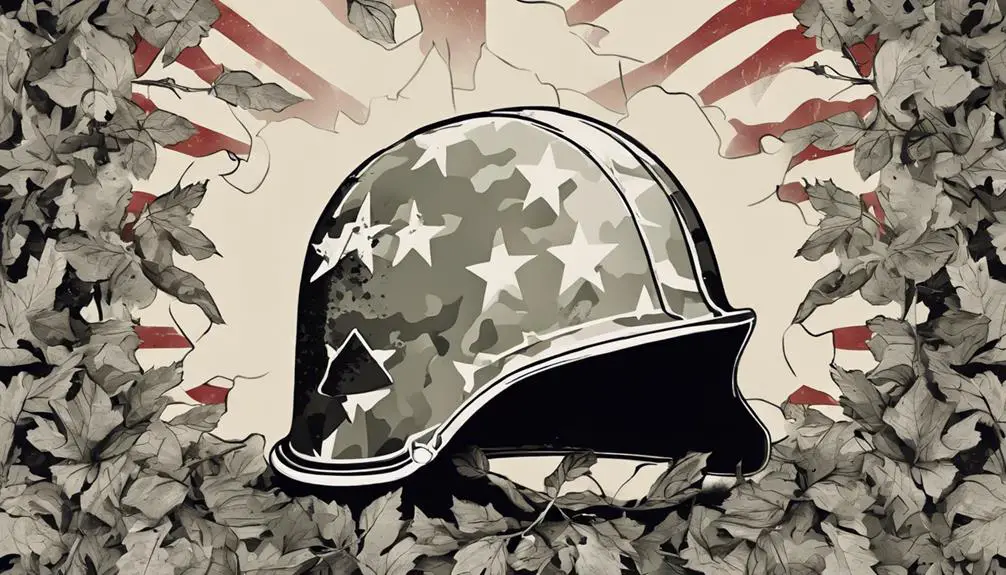You're about to explore the unique language of military terms and slang, forged over centuries to facilitate clear communication in high-pressure situations. From British soldiers' jabs at commanding officers to American adaptations and cultural exchange during World War II, military slang reflects historical and cultural contexts. As you venture into this specialized world, you'll discover essential terms like SITREP and FOB, and uncover the dynamics of tactical communication. With each new term, you'll gain insight into the evolution of military lingo, shaped by cultural, historical, and technological influences. The more you explore, the deeper you'll understand the intricacies of this dynamic language.
Origins of Military Slang

As you explore the world of military slang, you'll discover that it has a rich history. Military slang has its roots in the early 17th century, when British soldiers coined terms to mock their commanding officers and to create a sense of camaraderie among themselves. This early form of slang was a way for soldiers to bond and develop a sense of identity within their units.
The historical roots of military slang are deeply rooted in cultural influences. During World War I, American soldiers adopted slang terms from their British counterparts, which eventually evolved into a unique American military slang. The cultural exchange continued during World War II, as American soldiers interacted with soldiers from other countries, adopting and adapting terms to create a distinct military language.
As you investigate the origins of military slang, you'll notice that it's not just a collection of words and phrases, but a reflection of the cultural and historical context in which they were used. Understanding the historical roots and cultural influences of military slang provides a deeper appreciation for the language and its role in shaping military culture.
Essential Terms for New Recruits
When you step into the military, you'll quickly realize that understanding essential terms is crucial to traversing your new environment and communicating effectively with fellow soldiers.
To get started, here are three essential terms to learn:
- Boot Camp Basics: Familiarize yourself with the fundamental training program that teaches you military protocols, combat skills, and teamwork.
- Recruit Routines: Understand the daily routines and schedules that govern your life as a new recruit, including wake-up times, meal hours, and training sessions.
- SITREP: Learn to provide a concise Situational Report, which summarizes the current situation, highlighting key events, threats, and recommendations for action.
Mastering these terms will help you navigate the military's unique culture and language, ensuring a smoother entry into your new role.
As you progress, you'll encounter more specialized terminology, but these basics will provide a solid foundation for your journey.
Tactical Communication in Action

You'll rely on clear and concise tactical communication to convey critical information during operations, guaranteeing seamless teamwork and mission success. Effective communication is paramount in high-pressure situations, where every second counts.
When operating in the field, you'll use standardized radio protocol to convey vital information to your team. This includes using specific phrases, such as 'enemy in sight' or 'requesting backup,' to quickly convey critical information.
In addition to radio protocol, you'll also use battlefield syntax to convey complex information quickly and accurately. This includes using abbreviations, acronyms, and specific terminology to convey detailed information about enemy positions, friendly forces, and mission objectives.
Decoding Military Jargon Examples
Military jargon is replete with abbreviations, acronyms, and specialized terminology that can be bewildering to the uninitiated; however, familiarizing yourself with these examples will help you decipher even the most cryptic communications.
To break down the coded language, let's examine a few examples:
- SITREP: Situation Report, providing an update on the current state of affairs.
- FOB: Forward Operating Base, a temporary or permanent military base near the area of operation.
- CAS: Close Air Support, air power used to support ground troops in close proximity to enemy forces.
Evolution of Military Lingo

As you explore further into military terminology, you'll notice that the language has evolved over time, influenced by cultural, historical, and technological advancements that have shaped the way soldiers communicate. The evolution of military lingo has undergone significant transformations, driven by Lingo Revolutions that have adapted to the changing nature of warfare.
Cultural Impacts have played a significant role in shaping military language. For instance, during World War II, African American Vernacular English (AAVE) influenced the development of military slang. The integration of diverse cultural backgrounds has contributed to the richness and complexity of military terminology.
Additionally, technological advancements have led to the creation of new terms and abbreviations, such as 'drone' and 'GPS,' which have become integral to military communication.
Throughout history, military language has been shaped by the cultural, social, and political contexts in which it operates. As you explore further into the world of military terminology, you'll discover how these influences have contributed to the dynamic and adaptive nature of military lingo.
Frequently Asked Questions
Can Civilians Use Military Slang in Everyday Conversation?
When you utilize slang from a specific group, like the military, you might be accused of cultural appropriation. This raises questions about social norms and who has the right to use certain language.
In general, utilizing military slang in everyday conversation isn't inherently wrong, but it's crucial to take into account the context and potential impact. You should be respectful of the origins and meanings behind the terms, avoiding appropriation and ensuring your use is respectful and not dismissive of the culture it comes from.
Is Military Slang Universal Across All Branches?
Are you wondering if military slang is universally understood across all branches?
While some terms are indeed shared, each branch has its own distinct lingo. You'll find that branch-specific phrases and acronyms are often unique to their respective services.
However, there's a layer of cross-service jargon that allows for basic communication between branches.
Are There Any Military Slang Terms Specific to Certain Wars?
You're wondering if certain wars have their own unique slang terms. The answer is yes. War-specific lingo emerges during conflicts, reflecting the era's culture and experiences.
For instance, World War I's 'trench talk' referred to the harsh conditions, while Vietnam War's 'grunt speak' described the infantry's harsh realities.
Era-specific slang allows soldiers to express themselves, share experiences, and create a sense of camaraderie amidst the chaos of war.
Do Military Slang Terms Vary by Country or Region?
As you explore linguistic nuances, you'll find that cultural differences and international variations greatly influence the development of slang terms.
It's not surprising that regional dialects and local expressions emerge, reflecting unique historical, social, and geographical contexts.
You'll discover that military slang terms indeed vary by country or region, shaped by distinct cultural identities and experiences.
Can Military Slang Be Used in Formal Writing or Documents?
When writing in a formal tone, you should avoid using slang in official documents. In an official context, clarity and professionalism are key. Using slang can undermine your credibility and confuse your audience. Stick to standard language to guarantee your message is conveyed effectively.
While slang may be acceptable in casual conversations, it's not suitable for formal writing. You should prioritize precision and clarity over colloquial expressions.
Conclusion
As you've explored the world of military terms and slang, you've gained a deeper understanding of the language that shapes the culture of the armed forces.
Consider the story of Private Johnson, who during a mission, quickly responded to 'Oscar-Mike' (on the move) and successfully repositioned his team to avoid enemy fire.
This instance highlights the importance of clear communication in high-stress situations, where a single misinterpreted term can have devastating consequences.







